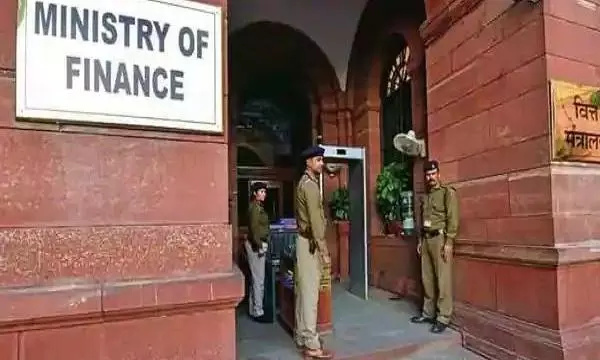
US tariffs | If govt-pvt sector work together, impact can be mitigated: Finance Ministry
According to the Monthly Economic Review, tariff-related uncertainties, geopolitical tensions, and supply-chain disruptions have had a major impact on global trade

The United States’ imposition of 50 per cent tariff on India is likely to have a major impact. The Ministry of Finance, in its Monthly Economic Review, highlighted the concerns.
Also read: What will Modi’s Japan visit mean for Asian giants? Entrepreneur Khader Sheriff decodes
The report stated that the US is a major market for India’s goods exports, and now several Indian merchandise exports will face high tariffs. According to the report, until this uncertainty around tariffs is resolved and duties are reduced, India will continue to bear the consequences.
What DEA said in report
The Department of Economic Affairs (DEA) under the Ministry of Finance noted in the report: “Due to uncertainties related to tariffs, there is currently a risk to economic activities, especially exports and investments. However, if the government and the private sector work together, the impact can be mitigated. If challenges are handled properly, they make us stronger and more resilient.”
Also read: US tariff shock to hit Bengal’s labour-intensive leather, marine, engineering exports
“If the burden of the current economic hardship is placed on those whose financial position is strong and who have the capacity to bear it, then even after this trade crisis, small and medium enterprises will emerge stronger from these difficulties. Hence, this is the time to take carefully thought-out steps in the interest of the nation,” it added.
However, the report did not specify what kind of burden should be imposed.
The outlook section of the report said that while the immediate impact of the recent US tariffs on India’s exports may appear limited, their indirect and long-term effects could pose challenges to the economy. In this context, the ongoing trade talks between India and the US hold great significance.
WTO estimates
According to the Monthly Economic Review, tariff-related uncertainties, geopolitical tensions, and supply-chain disruptions have had a major impact on global trade. Despite this, some resilience remains — largely because many countries imported more before tariff deadlines and because of improvements in broader economic conditions. Still, negative effects could appear later.
The World Trade Organization (WTO) estimates that global merchandise exports will grow by only 0.9 per cent in 2025, compared to the earlier forecast of 2.7 per cent before tariff hikes. This means trade could slow further, especially by late 2025 and into 2026. Global trade uncertainty continues to impact business confidence, investment, and supply chains. The Trade Policy Uncertainty Index, which had been declining after April 2025, rose again by 17.4 per cent in July 2025.
The Finance Ministry report reiterated that the US is one of the major markets for India’s goods exports, and many products will face high tariffs. Until the uncertainty is cleared and duties are reduced, India will feel the impact. For now, tariff-related uncertainties could affect economic activities, particularly exports and capital formation (investment). But with joint efforts by the government and private sector, these shocks can be softened.
Meanwhile, the exporters’ body FIEO (Federation of Indian Export Organisations) has urged the government for an immediate relief package, including interest subvention schemes and export credit support to ensure the availability of working capital and liquidity. It has also demanded a one-year moratorium on the repayment of loan principal and interest.
(This article was originally published in The Federal Desh)

